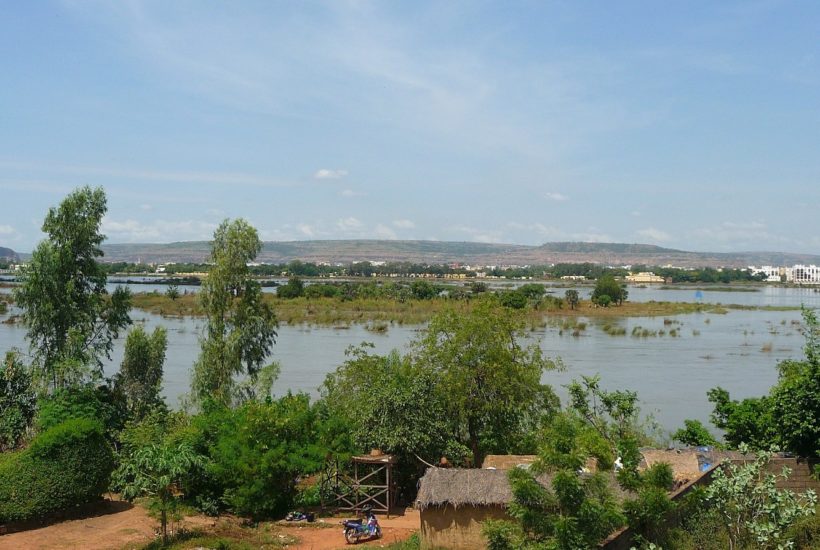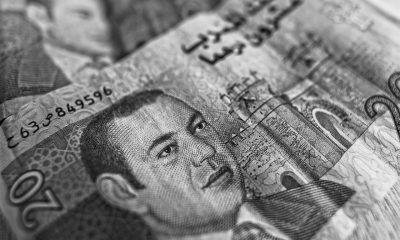Africa
Bank of Africa: contrasting results between WAEMU subsidiaries
In terms of figures, the various WAEMU zone subsidiaries of BMCE Bank of Africa, renamed Bank of Africa, presented rather contrasting results in 2019. For its part, BOA Burkina Faso increased its main aggregates. The total balance sheet stood at $1.47 billion (CFAF 867.2 billion), up 7.3%. GNP evolved in the same proportion to reach $72.3 million (CFAF 42.7 billion).

During a virtual press conference on Friday, May 29th, following the bank’s balance sheet conference which took place two days before through a webinar, the Deputy Managing Director of the Bank Of Africa (Boa) Group, Abderrazzak Zebdani, said that there is no significant impact due to the crisis caused by COVID-19 to be deplored in most BOA subsidiaries at the end of the first quarter of 2020.
“The indicators (either activity or profitability) are in line with the 2019 established budget forecasts,” noted the Deputy Chief Executive Officer.
Indeed, the group’s managers have shown optimism for the future of their activities but seem to be tormented by the “commissions” heading, as with the closing of borders, sub-regional and international trade, transfers abroad and transactions will slow down. “The effect is beginning to be felt in this commission section,” Zebdani said.
If you want to find out more about the Bank of Africa’s balance sheet and how the WAEMU subsidiaries financial results are contrasting, download the Born2Invest mobile app. Our companion app brings you the latest finance news for you to stay informed.
COVID-19 hasn’t spread the same in the countries where the Bank of Africa is represented
For the deputy general manager, who had at his side Laura Tran, Director of Participations and Stéphane Carrer, Director of Communications, the health situation is not at the same level in most of the countries where the bank is represented, which makes their roadmap even more complex. For, “instead of having a uniform business continuity plan for all countries, it had to be modulated at several levels according to the health situation in each country.”
The group also announced the setting up of a real production and collection tool for the piloting of recovery, which was previously considered inefficient with outdated procedures. “We have formed a new team with new procedures and a revision of the bankers’ profile added to a few sales staff to take charge of collection. That requires collection agents to provide advice and solutions to enable their clients to have several pallets in the refund,” said Abderrazzak Zebdani.
Contrasting results in the WAEMU zone subsidiaries of the Bank of Africa
In terms of figures, the various WAEMU zone subsidiaries of BMCE Bank Of Africa, renamed Bank of Africa, presented rather contrasting results in 2019. Thus, BOA Benin, the country’s first bank of the same name in terms of credit and deposits, with a total balance sheet of $1.5 billion (CFAF 920.8 billion), down -2.7%, presents a GNP up 5.1% to $70 million (CFAF 41.3 billion) for a net income of $25.4 million (CFAF 15 billion), up 17%. This good result is not correlated with the evolution of the BRVM share in depreciation of 14% more accentuated than that of the financial sector (-9.46%).
For its part, BOA Burkina Faso increased its main aggregates. The total balance sheet stood at $1.47 billion (CFAF 867.2 billion), up 7.3%. GNP evolved in the same proportion to reach $72.3 million (CFAF 42.7 billion). The same applies to the net result, up by 7% to $30.7 million (FCFA 18.15 billion). At the BRVM, the BOA Burkina Faso shares fell by 27.1%. Nevertheless, the Bank’s ROE of 25.1% was still rather remunerative given the banking averages in other regions.
Also a subsidiary of BOA West Africa, BOA Côte d’Ivoire saw its total balance sheet erode by 2.5% to $1.03 billion (CFAF 608.5 billion) while its GNP rose by 7.7% to $59.8 million (CFAF 35.3 billion) boosted by the sharp increase in commissions and its net income rose by 22% to $24.23 million (CFAF 14.3 billion). At the BRVM, the BOA Côte d’Ivoire share limited the breakage to a decline of 4.9%. ROE came out at 29.2%, which again shows a rather rewarding profile.
In Niger, the local subsidiary increased its balance sheet total by 8.2% to $582.8 million (CFAF 343.9 billion). GNP increased by 13% to $39.65 million (CFAF 23.4 billion) for a net profit of $14.4 million (CFAF 8.5 billion). The first Niger bank in terms of loans, second in terms of deposits, recorded a strong increase in the bank margin but a rather moderate increase in commission. At BRVM, the BOA Niger share depreciated by 13% in 2018.
For its part, BOA Senegal recorded an 8% increase in its balance sheet total of 906.6 million (CFAF 535 billion). The financial year was characterized by a strong increase (+20%) in GNP to $50.83 million (CFAF 30 billion) in contrast to the 7% growth in net income $15.4 million (CFAF 9.1 billion). At BRVM, the share price fell by -23.5% bringing the PER to 4.1x. The return on investment (ROE) was also higher than the banking average at 22.4%.
In Mali, the BOA subsidiary saw its total balance sheet increase by 12.6% to $978.4 million (CFAF 577.3 billion) for a net income up 7.8% to $54.23 million (CFAF 32 billion). The only snag was a 210% drop in net income to -$11.36 million (CFAF -6.7 billion). The bad upturn degrades the shareholders’ equity by 15% for a level of $44.57 million (CFAF 26.3 billion). It should be noted that significant downgrades of files have affected the margin, according to the group.
Despite the increase in the margin on commissions (+23%, especially on foreign exchange operations), and the sharp reduction in charges (the operating ratio was reduced to 71%), BOA Mali’s results were burdened by an exceptionally high level of risk provisions $28.15 million (CFAF 17 billion of loans downgraded to doubtful and disputed loans (CDL), 75% of which on 5 files), despite better collection performance than the previous year. At the BRVM, the security lost more than half of its value (-53.1%), a logical sanction.
A digital transformation in progress
During a webinar organized by the Bank of Africa (Boa) Group on Friday, May 29th, the Deputy Managing Director of the Bank Of Africa (Boa) Group, Abderrazzak Zebdani, argued that the digital transformation strategy launched in 2015-2016 is bearing fruit in the era of COVID-19.
Indeed, with the Coronavirus crisis and its corollary of barrier measures, limitation of travel and distance, the internet application and mobile application achieved a high number of subscriptions for consultation or to perform operations. “We are enriching these two applications with new submissions to further facilitate the lives of our customers,” said the Deputy Managing Director of the Bank Of Africa (Boa) Group.
This performance also reflects the number of accounts of the group which has largely exceeded the four million mark. “The report of the banking commission within WAEMU places our group in first place in terms of accounts with a market share exceeding 17%. We are second in terms of network market share for vending machines with a market share of 10% and third in terms of total balance sheet with 10% market share,” said Abderrazzak Zebdani.
In view of this significant increase in the number of subscriptions, the Group is considering switching to a convergence of these tools in order to have a single digital channel before the end of 2020. “The crisis is forcing us to think more quickly and broadly,” said Stéphane Carrer, director of communications for the banking group.
__
(Featured image by Kibi86 via Pixabay)
DISCLAIMER: This article was written by a third party contributor and does not reflect the opinion of Born2Invest, its management, staff or its associates. Please review our disclaimer for more information.
This article may include forward-looking statements. These forward-looking statements generally are identified by the words “believe,” “project,” “estimate,” “become,” “plan,” “will,” and similar expressions. These forward-looking statements involve known and unknown risks as well as uncertainties, including those discussed in the following cautionary statements and elsewhere in this article and on this site. Although the Company may believe that its expectations are based on reasonable assumptions, the actual results that the Company may achieve may differ materially from any forward-looking statements, which reflect the opinions of the management of the Company only as of the date hereof. Additionally, please make sure to read these important disclosures.
First published in Financial Afrik, a third-party contributor translated and adapted the article from the original. In case of discrepancy, the original will prevail.
Although we made reasonable efforts to provide accurate translations, some parts may be incorrect. Born2Invest assumes no responsibility for errors, omissions or ambiguities in the translations provided on this website. Any person or entity relying on translated content does so at their own risk. Born2Invest is not responsible for losses caused by such reliance on the accuracy or reliability of translated information. If you wish to report an error or inaccuracy in the translation, we encourage you to contact us.

-

 Africa1 week ago
Africa1 week agoBLS Secures 500 Million Dirhams to Drive Morocco’s Next-Gen Logistics Expansion
-

 Fintech2 weeks ago
Fintech2 weeks agoRipple Targets Banking License to Boost RLUSD Stablecoin Amid U.S. Regulatory Shift
-

 Impact Investing3 days ago
Impact Investing3 days agoSustainable Investments Surge in Q2 2025 Amid Green and Tech Rebound
-

 Biotech1 week ago
Biotech1 week agoBiotech Booster: €196.4M Fund to Accelerate Dutch Innovation

























